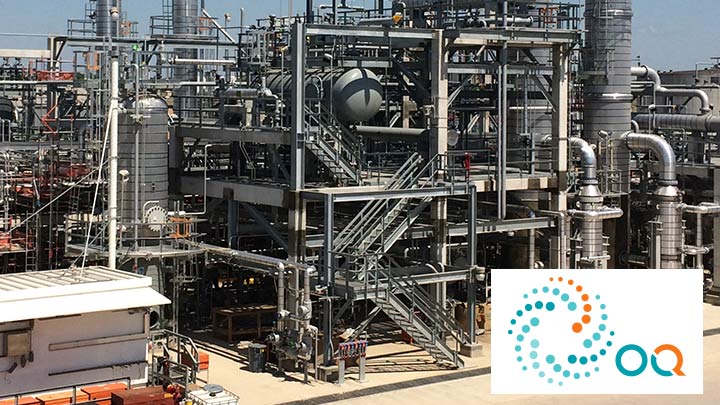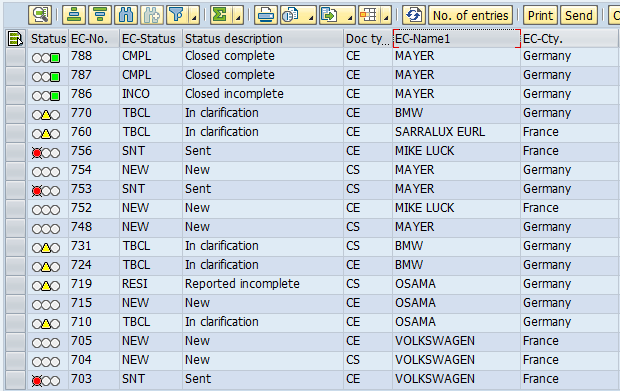
The 2017 Chemicals Prohibition Ordinance (ChemVerbotsV) requires written documentation for the transfer and receipt of highly dangerous products. Chemical company OQ Chemicals uses an IT solution integrated into its SAP system that allows for automatic compliance. The company’s project manager explains the process.
Detailed verifications must be kept on the transfer of products subject to the Chemicals Prohibition Ordinance (ChemVerbotsV). This includes documenting information on the type and quantity of the substances and preparations, the date of transfer, the purchaser, and the intended purpose. § 9 of the Chemicals Prohibition Ordinance stipulates that the receipt of the products must be confirmed.
Requirements for an efficient IT solution for the Chemicals Prohibition Ordinance
“We were looking for the most efficient automated process to comply with the Chemicals Prohibition Ordinance. Manual processes are too expensive and susceptible to error, making them unsuitable for the task. Monitoring and control is also problematic,” says Andreas Reul, SAP Application Manager of Supply Chain & Sales Order Management at OQ Chemicals in describing his company’s needs. Above all, the products’ intended purpose and receipt needed to be easily verified and documented through the process.
OQ Chemicals initially looked for a provider that had developed an interactive Chemicals Prohibition Ordinance form for the required documentation. “We couldn’t find anything suitable. But we also didn’t want a major SAP solution or an expensive development project,” Reul explains.

Andreas Reul identified a suitable solution in a procedure already in use at OQ Chemicals. In the case of VAT-exempt EU deliveries, companies are obliged to prove that the customer has actually received the goods (confirmation of receipt). OQ Chemicals already uses a solution from the SAP service provider Mercoline for this purpose. M.SecureTrade Gelangensbestätigung is an add-on for the SAP system to send and receive arrival confirmations fully automatically in a central SAP ERP application and to monitor their status. It was agreed with Mercoline to extend the proven add-on to include further document types and thus also apply it to the ChemVerbotsV.
Automated processing for the Chemicals Prohibition Ordinance
“In the material master, we introduced an ID for all of the products subject to the Chemicals Prohibition Ordinance. Now, the deliveries of these designated products are compiled each month,” explains Reul. Accordingly, customers receive a summarized confirmation for these deliveries.

The SAP add-on automatically sends an e-mail to the customers containing a link to the Mercoline solution’s web portal. Here they can see the details of the deliveries, including the type and quantity of the substances and preparations, the date of the transfer, the purchaser, and the intended purpose. The customers confirm each item with a click. The verifications are then returned to the OQ Chemicals SAP system. The SAP add-on automatically stores the electronic receipt for the Chemicals Prohibition Ordinance in the system. If there is no response from the customer, reminders can be sent from the system automatically.
“In addition to having an automated procedure, it was also important for us to have good controls and an overview of the process. The solution includes a monitoring function that shows us the statuses of messages and open items at all times,” says Reul. OQ Chemicals employees need only intervene in the process if, for example, the intended purpose is missing or no valid e-mail address is stored.
The electronic process has proven itself to be an excellent solution
“We introduced the new process after exhaustive testing. Customer acceptance is high, and not only because it’s a legal requirement. The process is very simple, because the entire procedure consists of just a few clicks in the web portal.” says Reul. He emphasizes how fast and smooth the introduction of the solution was in partnership with Mercoline. Along with the reliable basis provided by Mercoline’s Entry Certificate solution, he also praises Mercoline’s highly cooperative developers.
OQ Chemicals SAP application manager stresses that all of the processes are conducted within the SAP system. “There are no media disruptions in processing. It’s all automated, so we don’t need a separate procedure that the employees are unfamiliar with. This has allowed us to avoid using yet another interface requiring its own servicing and maintenance. We can comply with the legal requirements of the Chemicals Prohibition Ordinance and, in the event of an inspection, have access to all of the documents.”

About OQ Chemicals
OQ Chemicals is an international manufacturer of oxo intermediates and oxo derivatives including alcohols, polyols, carboxylic acids, special esters, and amines. These products are used in the production of high-quality coatings, lubricants, cosmetic and pharmaceutical products, flavourings and fragrances, printing inks, and plastics. OQ Chemicals' worldwide staff consists of more than 1,400 employees. OQ Chemicals is a subsidiary of the Oman Oil Company S.A.O.C. (OOC), a company wholly owned by the government of Oman. It was founded in 1996 in order to invest in the domestic and international energy sectors. OOC is an important component of the Sultanate of Oman dedicated to promoting the diversification and foreign investment of Oman’s economy. For more information on OQ Chemicals, visit https://chemicals.oq.com.